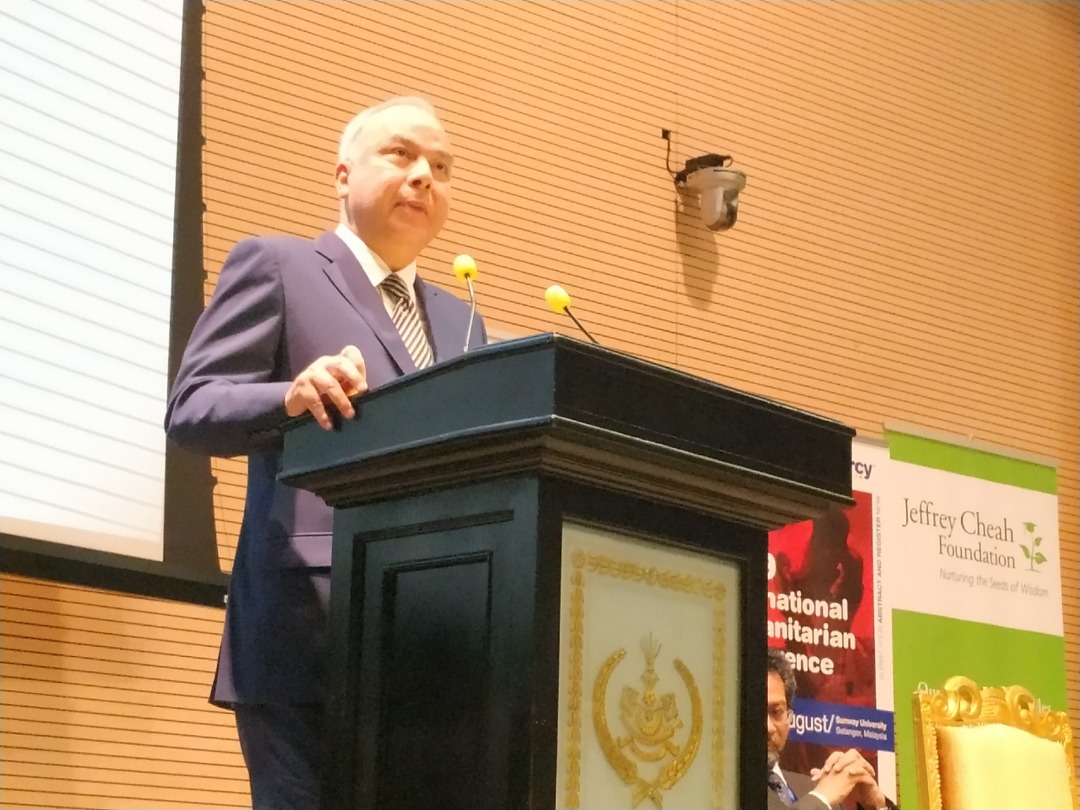PETALING JAYA, August 6 — Perak ruler Sultan Nazrin Muizzuddin Shah today called for more flexible funding to drive long-term humanitarian work by reducing the humanitarian financing gap and improving efficiency.
Sultan Nazrin noted that under the “Grand Bargain” — which is an agreement between the world’s biggest donors and humanitarian agencies — there has been a significant expansion of multi-year and non-earmarked funding by donors.
“This has been highly welcome, with so much progress already made that a potential ‘system-wide shift’ is being discussed,” Sultan Nazrin said at humanitarian non-profit Mercy Malaysia’s 2019 International Humanitarian Conference at Sunway University here today.
“More flexible funding is a vital element in the development of longer-term perspectives by humanitarian agencies, as is multi-year planning, which is also now being widely practiced. Together, these greatly facilitate practical linkages and coordination with development actors,” added the Mercy Malaysia patron.
The “Grand Bargain” was launched at the 2016 World Humanitarian Summit to improve effectiveness and efficiency of humanitarian action through greater financial transparency, increased cash assistance, and more funds for national and local responders.
Donors committed to reducing earmarked contributions, increasing multi-year funding, and harmonising reporting requirements, while aid agencies pledged to cut management costs and to include beneficiaries in decisions that affected them.
As of last July, the Grand Bargain has been endorsed by 61 signatories comprising 24 countries, 11 United Nations agencies, five inter-governmental organisations and Red Cross Movements, and 21 non-government organisations.
Sultan Nazrin noted that the Grand Bargain was mainstreamed early last year since its inception in May 2016, highlighting also progress in various areas like flexible funding.
“There has been good progress on joint assessments and analysis, and on the harmonisation of reporting procedures — all crucial building blocks for the joint programming that is the eventual goal.
“Progress is also reported in relation to localisation, another absolutely key area, of course, since the building of local capacities must be at the forefront of all humanitarian and development activities,” he said.
But Sultan Nazrin observed that progress under the Grand Bargain has been “very slow and incremental”.
“It has also been highly variable across the various work-streams, dependent in large part on the commitment, capacity and priorities of those responsible for each area,” he said.
“Very real constraints are, of course, faced in pushing forward this process of merging. These include the high transaction costs created by the additional layer of administration and coordination, which requires significant institutional investment.
“Some of these extra costs should be balanced out over time, however, by the efficiency gains from the continued streamlining of assessment and reporting processes. Greater transparency on funding has already enabled cost savings, for example, by allowing different funding streams to be combined.”
International aid policy analyst Christina Bennett wrote in June 2018 that practical and political challenges were preventing the Grand Bargain from translating many technical commitments into systemic change, with both funders and aid agencies feeling that the other wasn’t pulling its weight under the agreement’s “quid pro quo” expectation.








